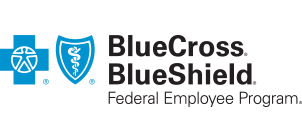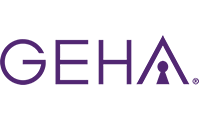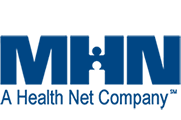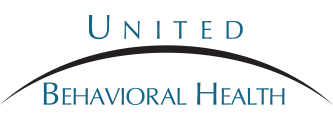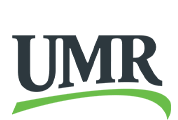Learn how to recognize the signs and symptoms of prescription drug addiction and get help for yourself or a loved one. Seven Hills Hospital helps individuals struggling with prescription drug addiction build a strong foundation for lasting recovery. Located near Las Vegas, Seven Hills is the leading provider of psychiatric and addiction treatment.
Understanding Prescription Drug Addiction
Learn About Prescription Drug Addiction
Painkillers, sedatives, stimulants, and other prescription drugs can be very helpful when taken as directed by a doctor. But, if prescription drugs such as OxyContin, Xanax, Adderall, and Ativan are abused, negative effects may result. This can include the development of an addiction. When this happens, addiction services may be required to help the individual recover.
Depending on the prescription drug that you are addicted to, a number of health problems and other consequences can arise. When you want to end your addiction, know that treatment can help. In starting professional services, you can heal from your prescription drug addiction and achieve sobriety.
Statistics
Prescription Drug Abuse Statistics
Prescription drugs are widely abused in the United States. In fact, studies show that almost 52 million people in this country have misused these drugs at some point in their lives. Stimulants, sedatives, and painkillers are believed to be the most frequently abused. Research has also shown that painkiller overdoses now surpass deaths caused by gunshot injuries, car accidents, and suicide.
Causes & Risks
Causes and Risk Factors of Prescription Drug Addiction
Experts believe certain causes and risk factors can impact whether or not you may struggle with prescription drug abuse. The following is a summary of what they have discovered:
Genetic: Research shows that the potential for addiction can be inherited. Certain inherited personality traits may make you vulnerable to abusing substances.
Environmental: The places where you spend time and the people you spend time with can impact whether or not you will abuse prescription drugs. For example, if your friends or family members abuse these substances, you may also engage in the same behaviors.
Additionally, if you have a prescription for certain drugs, you are at risk for abusing them. Lacking coping skills and not having healthy support may also raise your risk of beginning to abuse prescription drugs.
Risk Factors:
- Having a family history of addiction
- Suffering from a medical condition that requires prescription medications
- Having easy access to prescription medications
- Experiencing trauma or a great deal of stress
- Having a history of mental illness
- Having a family history of mental illness
Signs & Symptoms
Signs and Symptoms of Prescription Drug Addiction
The following are signs and symptoms of prescription drug abuse and addiction. If you recognize that you or a loved one are experiencing these symptoms, receiving professional help is recommended:
Behavioral symptoms:
- Lying about where you are going and what you are doing
- Using prescription drugs when it is dangerous
- Missing work
- Visiting multiple doctors in order to get prescriptions
- Aggressiveness
- Stealing prescription drugs
- Stealing money to buy prescription drugs
- Trying but failing to end your use of prescription drugs
- Change in peer group
- Using prescription drugs more often than intended
Physical symptoms:
- Bloodshot eyes
- Onset of withdrawal symptoms when not using prescription drugs
- Weight loss or gain
- Slurred speech
- Poor hygiene
- Shakiness
- Sleep problems
- Poor coordination
- Appetite changes
Cognitive symptoms:
- Slowed thought processes
- Poor concentration
- Problems with decision-making
- Poor judgement
- Cravings for prescription drugs
- Confusion
- Disorientation
Psychosocial symptoms:
- Increased anxiety
- Abrupt mood changes
- Decreased motivation
- Decreased interest in enjoyable activities
- Feeling depressed
- Feeling agitated
- Feeling irritable
Lasting Effects
Effects of Prescription Drug Abuse
Without treatment, you could remain addicted to prescription medications. Additionally, you may also become vulnerable to the following negative effects:
- Organ failure
- Suicidal ideation
- Suicide attempts
- Overdose
- Onset of mental disorders
- Polysubstance abuse
- Social isolation
- Relationship conflict
- Divorce
- Start or worsening of health problems
- Job loss
- Inability to get a job
Co-Occurring Disorders
Prescription Drug Addiction & Co-Occurring Disorders
Other illnesses can occur at the same time as an addiction to prescription drugs. The following are examples of co-occurring disorders:
- Posttraumatic stress disorder (PTSD)
- Depressive disorders
- Bipolar disorder
- Other substance use disorders
- Anxiety disorders
Withdrawal & Overdose
Effects of Prescription Drug Withdrawal and Overdose
Effects of prescription drug withdrawal: When you abuse prescription drugs, your body gets used to them. This is known as tolerance. When you then stop using these drugs, withdrawal symptoms may start, and can include the following:
- Vivid dreams or nightmares
- Feeling agitated
- Anxious feelings
- Seizures
- Rapid heart rate
- Stomach cramping
- Nausea
- Vomiting
- Diarrhea
- Appetite changes
- Confusion
- Disorientation
- Hallucinations
- Fatigue
- Feeling weak
- Restlessness
- Tremors
- Sleep problems
- Muscle aches
- Sweating
Effects of prescription drug overdose: Consuming too many prescription drugs can harm your health. One potential outcome of this is overdose. An overdose can be fatal if you are not treated quickly. If the following effects happen, seek medical help:
- Inability to communicate
- Blue tint to lips and fingertips
- Seizures
- Slowed heartbeat
- Chest pains
- Muscle cramps
- Dizziness
- Vomiting
- Breathing problems
- Coma
- Loss of skin color
- Clammy skin
- Dilated pupils
- Respiratory failure



